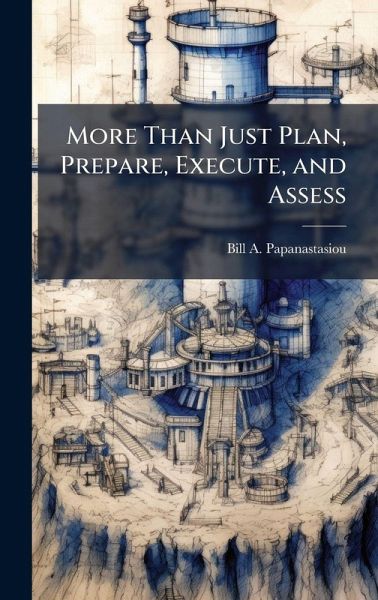
More Than Just Plan, Prepare, Execute, and Assess
Versandkostenfrei!
Versandfertig in über 4 Wochen
27,99 €
inkl. MwSt.
Weitere Ausgaben:

PAYBACK Punkte
14 °P sammeln!
With the end of the Cold War and the collapse of the Soviet Union in 1989, the grip of superpower strictures loosened resulting in an increase in complexity and dynamism that marks today's security environment. The rapidly changing and uncertain environmental and strategic realities of the past fifteen years have compelled U.S. operational and strategic leaders to review their understanding of operational art, find extant operational voids, and fill them with new or renewed conceptual approaches. The aim of this monograph is to conduct an evaluation of the two most predominant experimental the...
With the end of the Cold War and the collapse of the Soviet Union in 1989, the grip of superpower strictures loosened resulting in an increase in complexity and dynamism that marks today's security environment. The rapidly changing and uncertain environmental and strategic realities of the past fifteen years have compelled U.S. operational and strategic leaders to review their understanding of operational art, find extant operational voids, and fill them with new or renewed conceptual approaches. The aim of this monograph is to conduct an evaluation of the two most predominant experimental theoretical constructs - Effects-Based Approach to Operations (EBAO) and Design - and confront the challenge of integrating practical elements of the two constructs into the cyclic operations process: plan, prepare, execute, and assess. This research finds the two alternative conceptual approaches to operational thought - EBAO and Design - as having considerable irreconcilable differences. Whereas EBAO applies a systems perspective to develop solutions through center of gravity and nodal link analyses, Design focuses on deriving a deeper systemic understanding through heuristic thinking and learning. In practice, overly reductive and algorithmic additions to the original EBAO concept, such as System of Systems Analysis (SOSA) and Operational Net Assessment (ONA), discredited EBAO in the eyes of numerous U.S. Military senior leaders. Having fallen short on meeting its promise of predictivity, EBAO must return to its original principles to retain any relevancy in today's complex operational environment. Nevertheless, integration is possible considering the similarities in methodological techniques. Of the two approaches Design is the superior approach while operating in complex environments. Complimented by select EBAO elements and offering a broader holistic thinking and learning methodology, Design significantly enhances the commander-driven activities of the operations process. This work has been selected by scholars as being culturally important, and is part of the knowledge base of civilization as we know it. This work was reproduced from the original artifact, and remains as true to the original work as possible. Therefore, you will see the original copyright references, library stamps (as most of these works have been housed in our most important libraries around the world), and other notations in the work. This work is in the public domain in the United States of America, and possibly other nations. Within the United States, you may freely copy and distribute this work, as no entity (individual or corporate) has a copyright on the body of the work. As a reproduction of a historical artifact, this work may contain missing or blurred pages, poor pictures, errant marks, etc. Scholars believe, and we concur, that this work is important enough to be preserved, reproduced, and made generally available to the public. We appreciate your support of the preservation process, and thank you for being an important part of keeping this knowledge alive and relevant.












